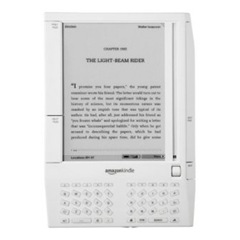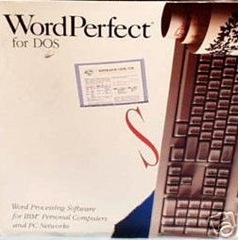There are two things that most lawyers like: gadgets and books. Now there is a gadget for books.
It is an e-book reader using a special electronic display that is particularly easy on the eyes. Unlike most displays, it can be read easily in direct sunlight, and it can be read at virtually any angle. It is like reading a regular book.
There is more than one type of e-book reader using this electronic display, all made by E Ink. Amazon’s Kindle and Bookeen’s Cybook both have a six inch screen and four grey scales. The Kindle has the big advantage of offering a wide selection of books through the Amazon.com online store. That store uses a proprietary format (ASZ) that only the Kindle can read.
I bought the Kindle because it solved some problems I had with buying books in Japan. I didn’t have space for new books, and I disliked the long wait for shipping. Also, the books on the Kindle are cheaper than regular books.
 In addition to reading books in the ASZ format, the Kindle can handle files in the TXT format, and (if not protected by DRM) in the PRC/MOBI formats. In addition, Amazon will convert other formats into ASZ format. This means that you can take your own files or files from other places, and read them on your Kindle. Most of my reading now is of books that I download from Project Gutenberg and read on my Kindle.
In addition to reading books in the ASZ format, the Kindle can handle files in the TXT format, and (if not protected by DRM) in the PRC/MOBI formats. In addition, Amazon will convert other formats into ASZ format. This means that you can take your own files or files from other places, and read them on your Kindle. Most of my reading now is of books that I download from Project Gutenberg and read on my Kindle.
Recently, at a local computer club in Nagoya, I had a chance to compare notes with someone having the Bookeen Cybook. While I still love my Kindle, I realize that the Cybook has a big advantage in being able to read many more formats. While it can’t read the ASZ format, it can easily read PDF and DOC formats. Therefore, it is better suited for when you want to take your work product with you.
One minor annoyance with the Kindle is that it needs to use a limited set of the US ASCII set, otherwise one gets strange looking characters where there should be accented vowels. Another annoyance is that it isn’t available outside the United States. Still, the Kindle is one of my favorite gadgets.
A Kindle is a thing to love.
Ernest Schaal is a retired patent lawyer, living in Gifu, Japan.

 The all-time favorite version of
The all-time favorite version of